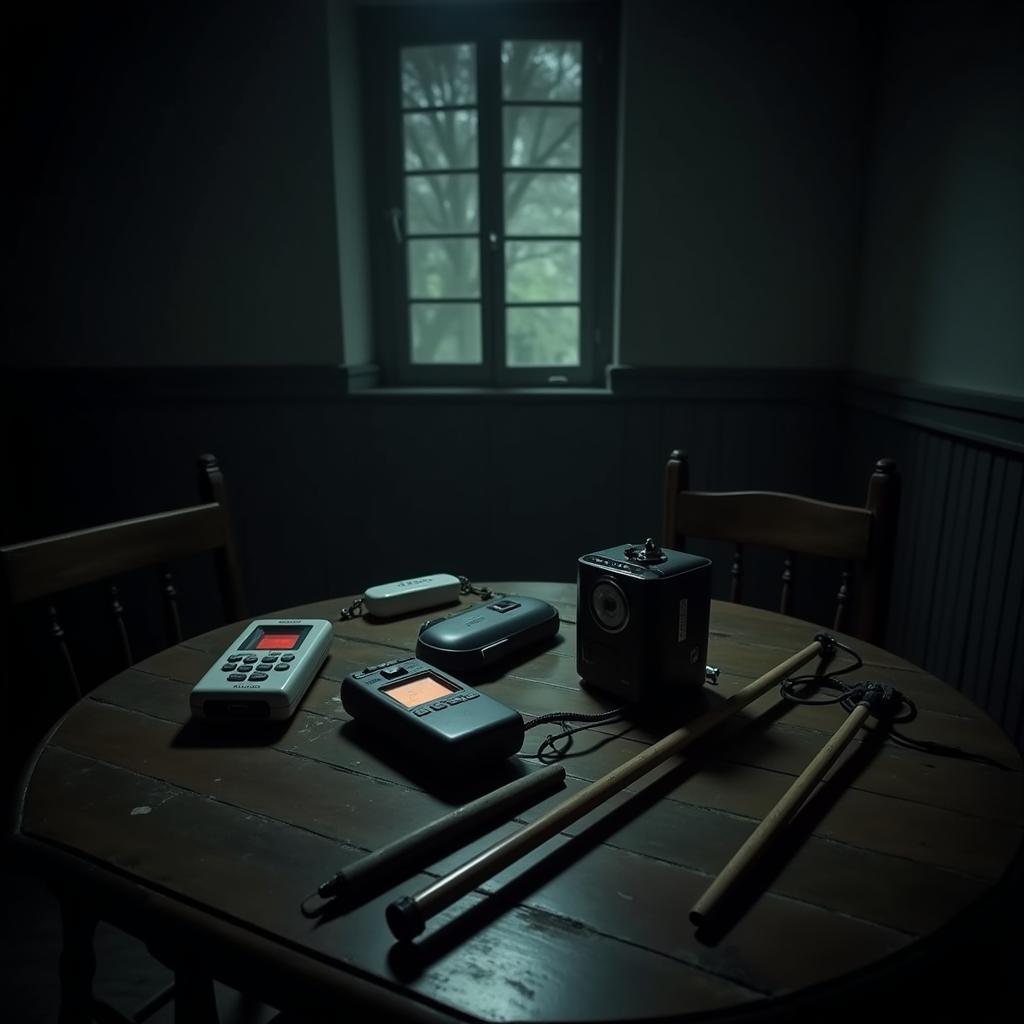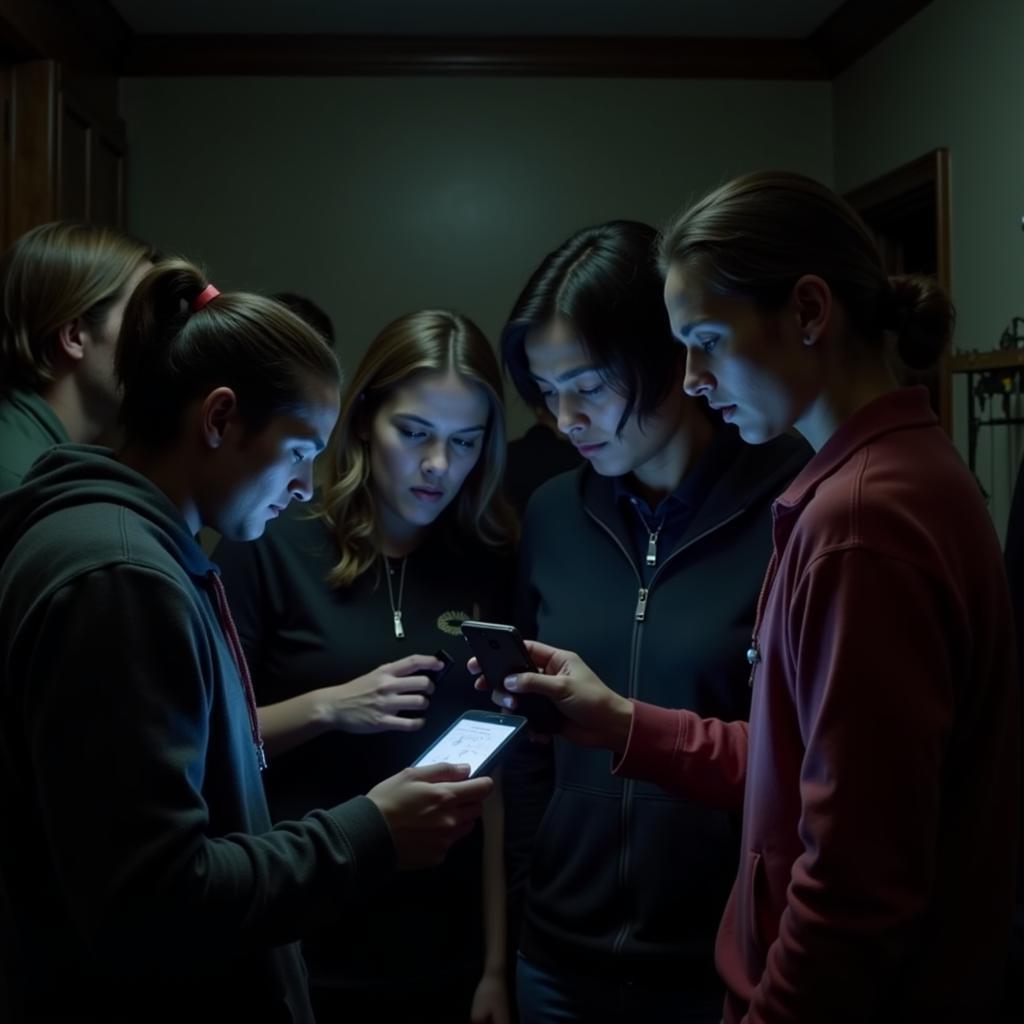Venturing into the unknown is a fundamental human desire, driving exploration and discovery throughout history. But what happens when the thirst for knowledge leads us beyond the realm of conventional research, into the shadows of the unexplained? Investigating outside the research area, especially in the context of paranormal research, presents unique challenges and requires a different approach than traditional scientific inquiry.
While institutions like Boston University Undergraduate Research provide a strong foundation for scientific exploration, paranormal investigation often necessitates venturing beyond the confines of established methodologies and into the world of subjective experiences and anecdotal evidence.
Embracing the Unexplained: Why Investigate Outside the Research Area?
The allure of the paranormal lies in its very nature – the defiance of established norms and the tantalizing possibility of hidden realities. Investigating outside the research area allows us to:
- Explore the Boundaries of Human Perception: Paranormal phenomena often manifest in ways that challenge our understanding of the senses and consciousness.
- Confront Unexplained Phenomena: From ghostly apparitions to telekinetic abilities, investigating these events allows us to confront mysteries that science struggles to explain.
- Expand our Understanding of Reality: By venturing beyond the familiar, we open ourselves to the possibility of alternate realities, dimensions, and forces beyond our current comprehension.
 Paranormal Investigation Tools
Paranormal Investigation Tools
Navigating the Uncharted: Challenges of Investigating Outside the Research Area
While intriguing, investigating outside the research area is fraught with challenges. Traditional scientific methods often fall short when dealing with subjective experiences and phenomena that defy easy replication.
- Lack of Empirical Evidence: Paranormal events often lack tangible, measurable data, making it difficult to apply traditional scientific analysis.
- Subjectivity and Bias: Witness accounts and personal experiences are highly subjective and prone to bias, making it challenging to separate genuine phenomena from misinterpretations or fabrications.
- Ethical Considerations: Investigating claims of hauntings, possessions, or other paranormal activity requires sensitivity, respect for the individuals involved, and a commitment to ethical conduct.
Tools for the Intangible: Adapting Research Methods
While traditional research methods may not fully apply, investigating outside the research area requires a rigorous approach:
- Thorough Documentation: Detailed records of observations, environmental conditions, and witness testimonies are crucial.
- Multidisciplinary Approach: Combining aspects of psychology, sociology, history, and folklore with scientific principles can provide a broader understanding of paranormal phenomena.
- Open-Minded Skepticism: Maintaining a balance between open-mindedness to possibilities and critical analysis of evidence is essential for responsible investigation.
The Power of Collaboration: Expanding Research Horizons
Collaboration is key when investigating outside the research area. Organizations like the URI Research Foundation demonstrate the power of collaborative efforts in traditional research, and the same principle applies to paranormal studies. Sharing data, methodologies, and experiences within the community fosters a more comprehensive understanding of the unexplained.
 Paranormal Investigation Team
Paranormal Investigation Team
Beyond the Veil: The Future of Paranormal Exploration
As we continue to explore the boundaries of human knowledge, investigating outside the research area will undoubtedly play a role. With advancements in technology and a growing acceptance of alternative perspectives, we may be on the cusp of new discoveries that challenge our understanding of the universe and our place within it.
Remember, whether you’re delving into the mysteries of Genesis Research or exploring unexplained phenomena, the key is to approach the unknown with a curious mind, a discerning eye, and an unwavering commitment to ethical investigation.
Investigating Outside the Research Area: FAQs
1. Is paranormal investigation dangerous?
Like any investigation, there are inherent risks. However, by taking precautions, respecting the environment, and prioritizing personal safety, risks can be minimized.
2. What should I do if I experience something paranormal?
Document the experience in detail. If it involves a location, research its history. Consider contacting a reputable paranormal research group.
3. Can science explain paranormal phenomena?
Some experiences may have scientific explanations yet to be discovered. However, many defy current scientific understanding.
4. How can I get involved in paranormal research?
Join local paranormal groups, attend conferences, or volunteer with organizations dedicated to Paranormal Research.
Need Help Investigating the Unexplained?
Contact us for support:
Phone: 0904826292
Email: research@gmail.com
Address: No. 31, Alley 142/7, P. Phú Viên, Bồ Đề, Long Biên, Hà Nội, Việt Nam
We have a 24/7 customer support team ready to assist you.